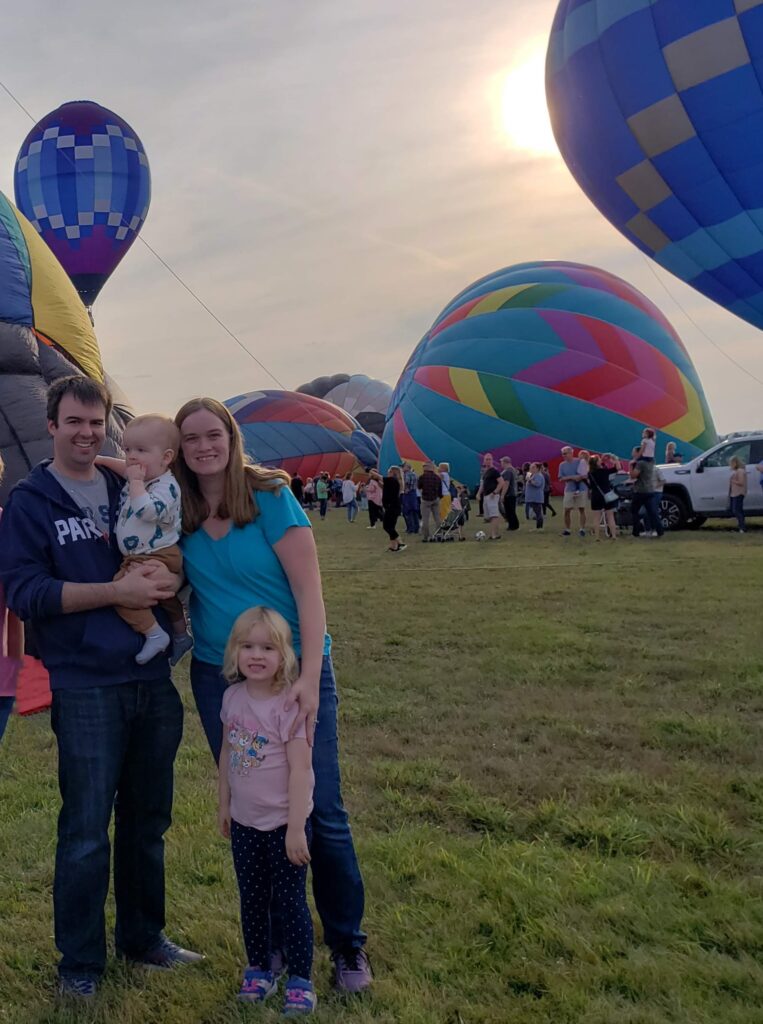Like many young professionals beginning their careers, when it came time to sharing my ideas in the workplace, I often found myself questioning my abilities. Despite doing the tried-and-true things such as being prepared for meetings, listening carefully to others, or practicing what I needed to present, I hesitated to make my opinion heard, wondering whether I should contribute or even if I would be adding anything to the discussion. As my career has developed, my confidence has grown. I have become a more effective communicator and, in turn, a more effective leader.
I remember starting my very first college internship. I was incredibly nervous. I had just finished my first year of college and had successfully completed the basic science required courses for an engineering degree. My internship was with Altieri working as a mechanical engineer intern. The job sounded very interesting, especially as I had just decided on mechanical engineering as my major, but my coursework to date had very little do with HVAC systems. Before I started my internship, I went shopping for a whole new wardrobe, preparing myself for my first ‘office’ job, as if by looking the part it would get others to overlook that I was completely new to the field. In my first few weeks on the job, I was incredibly nervous I would make a mistake or ask a stupid question. Would everyone I was working with “see behind the curtain,” and realize that I had no idea how to do any of the work? As I was to learn, while these nerves are completely normal, they were unnecessary. The people I worked with knew exactly what classes I had taken and did not expect me to know mechanical design yet. In fact, they were willing to teach me as much as they could in the short time I was there and encouraged me to ask questions of any kind. They had more confidence in me than I had in myself. I didn’t know it at the time, but this is when I first learned how valuable the support of experienced people would be to my professional growth.
As I have progressed in my career, I have developed a network of people supporting and encouraging me including professors, bosses, coworkers, friends, and family. It has been important for me to surround myself with people who are encouraging when I am doing well professionally, as well as those who can help me learn and move on from mistakes. Building these deeper connections has also enabled people I work with to recognize my strengths and use them to help me develop and perform at a higher level.

It is this same support network that helped me recognize the skills I bring to the table and encouraged me to share these skills with others. After working for a year following college graduation, I was still hesitant to speak up at meetings. Despite being more than prepared on the subject matter, I was afraid that I would say the wrong thing or that the idea I had would be received poorly. I often second guessed myself and would talk myself out of contributing. Luckily, the people that I worked with were incredibly supportive. They would often turn to me and specifically ask my opinion or offer a simple “What do you think Sara?” This would give me enough of an opening to offer my unique perspective on whatever was being discussed at the time. The more I spoke up, the more I realized that people did value what I had to say. There were many times I would see things that others would not. I learned how important every different viewpoint is to successful collaboration. As the years have gone by and I have grown more confident in my knowledge of the subject matter, contributing to meetings is no longer something I think twice about. I have also had my fair share of experiences when an idea I raised was quickly dismissed for one reason or another. At the beginning of my career, I tended to internalize these moments; now I know it is just part of the process and don’t give it a second thought.
Gaining more confidence in my technical expertise, has also given me more confidence taking stretch opportunities. These are opportunities that are outside your comfort zone; they can be very valuable in your career. Stretch opportunities, depending on your job level, may look like covering a meeting for the person you report to, giving a presentation, or managing a project for the first time. A few years after graduating college, I worked for a brief time doing commissioning. After getting trained on the commissioning process and procedures, I was given the opportunity to manage my own project. Managing all the technical and organizational aspects of a project was second nature to me, but this role also included leading the project-wide commissioning meetings. Just a few years out of college, I was supposed to run a meeting with a room full of contractors and engineers, each with many more years of experience than I had and, typically, all men. This was undoubtedly one of the most nerve-racking things that I had done professionally to date. Looking back on it now, I recognize that the experience was extremely valuable. At first, I would often receive immediate push back from contractors; my guess is that this was due to my gender and/or age. However, the more projects I managed, the more confident I became. I was able to find my voice and learn to stand my ground when it was something important. As uncomfortable as these situations can be when you are in the midst of them, I have found that stretch opportunities have developed my confidence faster than anything else.
After commissioning for a bit, I returned to MEP design work. I have since been able to serve as project manager for multiple projects and am often the only Altieri representative at meetings. I no longer struggle with second-guessing myself or wondering if I belong. Instead, I speak up and offer my opinion knowing that I have an important perspective. As I move forward with my career, I am trying to extend to others the same support that was offered to me. I try to encourage others to offer their unique perspective and to use their voices, remembering how my confidence has grown since that very first internship.



